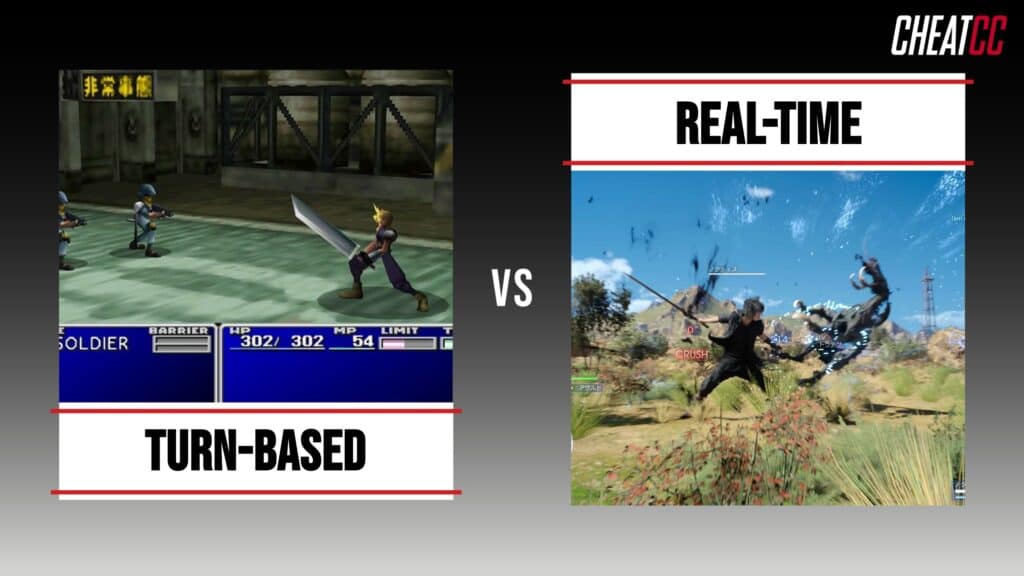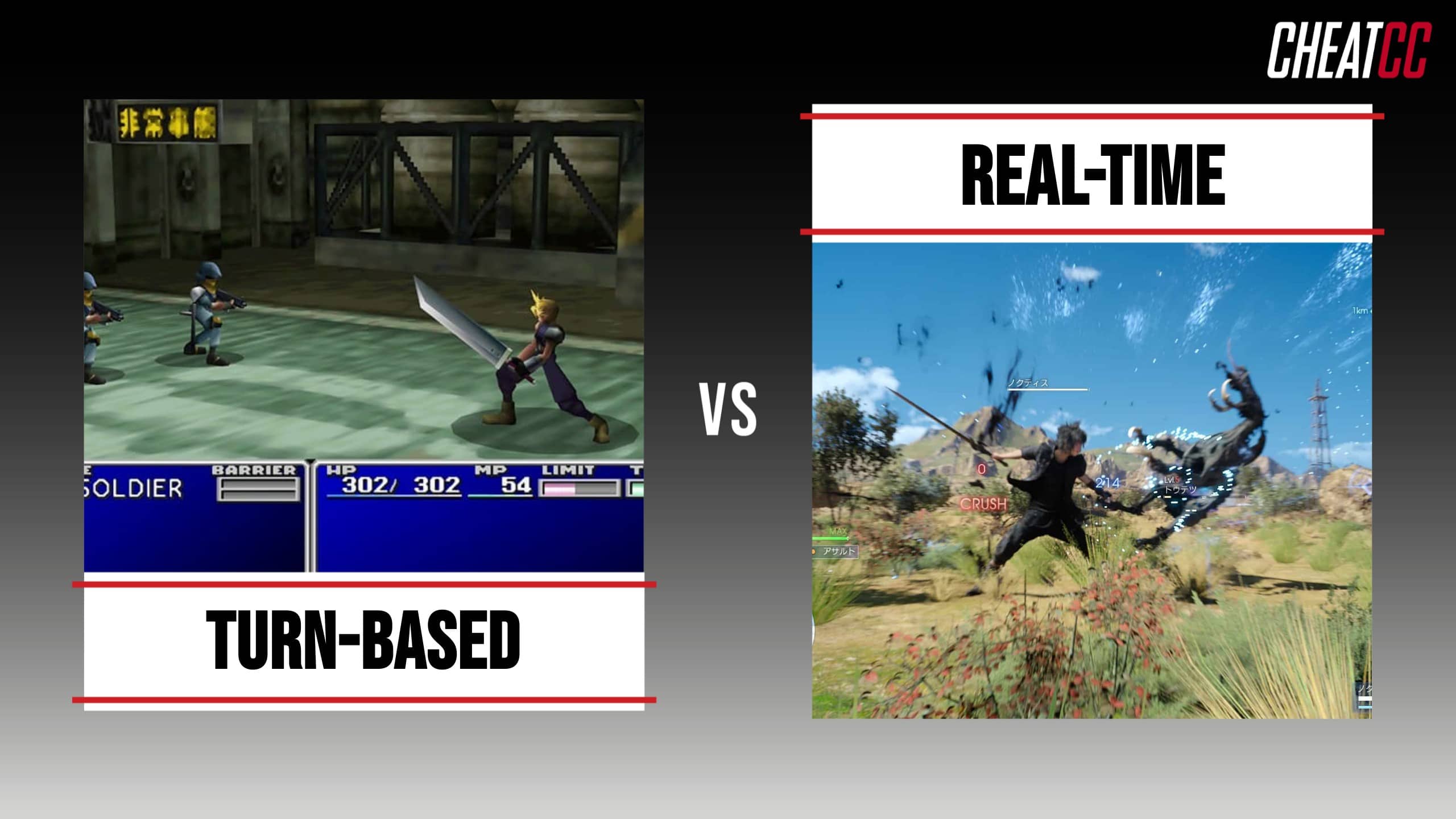It might be a bit of a newer debate, but the competency with which Square Enix has executed the new real-time combat in Final Fantasy XVI highlights the potential for the series to continue moving beyond its traditionally turn-based roots. While practically every game in the Final Fantasy series helped to first champion and then iterate on the traditional turn-based combat of console RPGs, the franchise has gradually shifted towards more real-time action, culminating with the latest mainline entry definitively being more of a character action game than a traditional JRPG. That said, Final Fantasy XVI maintains the standard of quality that has long been synonymous with the series, making a case for more games like it to follow suit.
However, there are fans who refuse to see any Final Fantasy featuring real-time combat as a “real” Final Fantasy game, highlighting the importance of turn-based combat in maintaining the series’ identity. After all, out of more than 35 years of existence and 16 mainline entries, only a small handful have combat systems that deviate from the norms the first game establishes. The Final Fantasy series will likely continue to serve as one of the flagship RPGs and Square Enix’s most famous franchise, but the direction it takes from here is anyone’s best guess. Whether it should continue the real-time combat model of Final Fantasy XVI or return to its turn-based roots is the question.
Turn-Based vs. Real-Time Combat: Side-by-Side Comparison

For a series that has traditionally been associated with turn-based combat, the last several years’ worth of Final Fantasy games have seen the franchise continually inch closer to becoming a full-on real-time series. Both Final Fantasy XV and Final Fantasy XVI feature real-time combat, and the excellent Final Fantasy VII Remake introduces a hybrid combat system that mixes the best of the old and new to become something worth revisiting in future series installments. Ultimately, though, the history of the Final Fantasy franchise and its various evolutions throughout the years are inseparable from its turn-based combat.
| Category | Turn-Based Combat | Real-Time Combat |
|---|---|---|
| Number of Series Games | 12 | 3 |
| Total Sales Across Entries | 122.6 million units | 20.3 million units |
| Metacritic Average | 88 | 87 |
| Influence on Other Entries | Every mainline Final Fantasy barring XI, XIV, XV, and XVI | N/A |
| Influence on Genre | Original Final Fantasy and its combat is one of the foundational games in the RPG genre | Final Fantasy XV and XVI both borrow from other popular action games for their combat rather than see their influence felt across other RPGs |
| Strategic | ✅ | ✅ |
| Control Over Party Members | ✅ | Limited |
| Allowance for In-Depth Magic System | ✅ | |
| Greater Player Control | ✅ | |
| Satisfying and Engaging | ✅ | ✅ |
Turn-Based vs. Real-Time in Final Fantasy: 5 Must-Know Facts
Here are 5 must-know facts about the Final Fantasy series’ use of turn-based and real-time combat:
- Of the 16 mainline games in the Final Fantasy series, 12 of these titles utilize a traditional turn-based combat system. The online entries (Final Fantasy XI and XIV) have MMO-style combat that is its own system entirely, and the only games in the series with real-time combat are the Final Fantasy VII Remake, Final Fantasy XV, and Final Fantasy XVI.
- While the original Final Fantasy features all the members of the player’s party acting out their turn before the enemy can react, this rudimentary system has undergone several iterations and evolutions throughout the years, resulting in each game in the series featuring its own take on the franchise’s signature combat model.
- Although Final Fantasy VII Remake uses a real-time combat system, players are able to strategically pause and issue commands to party members, as well as cast spells and summons or use items. This unique hybrid model represents a middle-ground approach between the two combat models up for debate.
- There are plenty of longtime fans that find the new, action-heavy real-time combat of Final Fantasy XVI to be a perfect fit for the game and a potential way forward for the franchise. Conversely, there are just as many longtime fans that are unhappy with the latest game’s removal of several trademark Final Fantasy staples.
- Looking at sales alone, the turn-based Final Fantasy games maintain an average of 10 million units sold per entry, while the real-time games in the series only boast roughly 6 million copies per entry on average.
Turn-Based vs. Real-Time: Which Appears More Often in Final Fantasy?
With the series starting as a turn-based, traditional RPG, it makes sense that most games in the Final Fantasy franchise adhere to the template established by the original. Additionally, the limits of hardware at the time of the older games’ launches help to validate turn-based combat as the correct approach to maintain the scale and depth that the series is known for versus settling for something substandard. That said, with the power of modern consoles the capability of deep and rewarding real-time combat systems becomes a possibility. The series may not have origins as a real-time action game, but future entries may continue down that path.
Turn-Based vs. Real-Time Combat: Evolving Throughout the Years
What begins as a simple “I go, you go” combat model in the Final Fantasy series eventually becomes increasingly complex and layered thanks to innovations like the ATB system or Gambits that later games introduce. Truthfully, Final Fantasy‘s approach to turn-based combat has always innovated within the genre, leaving a lasting impression on all the games that come after it whether they come from parent company Square or otherwise. Conversely, Final Fantasy XV and XVI‘s systems are reminiscent of other games’, including Devil May Cry 5 combat designer Ryota Suzuki contributing to the design of Final Fantasy XVI. Rather than be an innovator, the real-time Final Fantasy games are simply refining what has come before.
Turn-Based vs. Real-Time Combat: Final Fantasy VII Remake’s Unique Approach
Unique among the Final Fantasy games with real-time combat is the Final Fantasy VII Remake, which blends what might be the best aspects of both turn-based and real-time combat to provide something different from either. Players get to control any of their party members in real-time and execute attacks with button presses, but then have the flexibility and freedom to briefly pause combat issue more strategic commands, and execute moves with longer wind-up times. It’s a great middle-ground approach that works well for the series, making it a wonder that the system doesn’t feature in Final Fantasy XVI.
Turn-Based vs. Real-Time: Which do Fans Prefer?
Both critic and user scores point to a bit of a tie between the two different eras of Final Fantasy combat, with both the newer real-time games and the older, more traditional entries having nearly identical average scores across all entries. Community forums and social media platforms provide some further insight into the fan divide over combat model preference, with several longtime fans claiming that Final Fantasy XVI is not a “real” game in the series thanks to its shedding of several RPG mechanics and adoption of a real-time combat system. Although it’s one of 2023’s best-ranking games, it would appear that Final Fantasy XVI‘s departures result in division among the fanbase.
Bottom Line:
As someone who can find elements of every Final Fantasy game to enjoy, it’s difficult to draw a hardline stance regarding which combat model reigns supreme in the Final Fantasy series. That said, the series has a rich tradition of introducing and utilizing turn-based combat across most of the franchise’s mainline games, and that can make the newer games feel like somewhat of an unnecessary deviation rather than a welcome innovation. For longtime fans, Final Fantasy will likely remain a turn-based game, and whether the newer entries in the series choose to embrace or abandon that may be a line in the sand for some.
